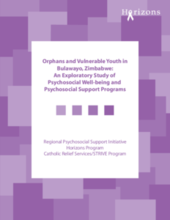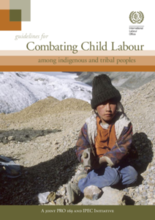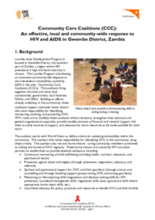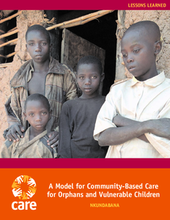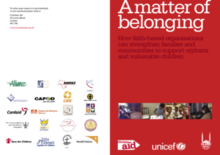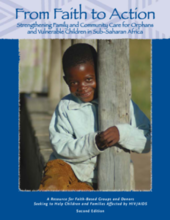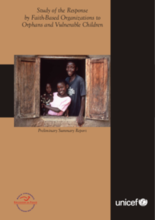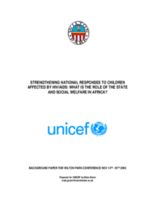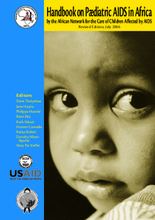Displaying 361 - 370 of 416
Investigates psychosocial well-being and psychosocial support services for youth affected by HIV/AIDS in Zimbabwe. Includes summary of key findings and implications for programming and research.
Guidelines to address the specific needs and rights of indigenous children in the context of child labour. Includes a comprehensive list of follow-up resources.
Short document outlining the constitution, role, and work of community care coalitions in Gwembe District, Zambia. Includes lessons learned and recommendations.
A lessons learned document reviewing impacts of a community-based care and mentoring program for child-headed households in Rwanda.
A guide for faith-based organizations working in developing countries on issues related to orphans and vulnerable children. Contains examples of successful community-based and family support care programs throughout the world that are run by faith-based groups. Discourages the use of institutional care and orphanages.
A tool to encourage donors to fund community programs that keep children in family care, rather than simply funding orphanages. Describes the many strategies being used to invest in community-based care, and contains specific program examples.
A study that looks at the response of faith-based organizations in Kenya, Malawi, Mozambique, Namibia, Swaziland, and Uganda. The report contains statistical information, and details positive care practices to build on, and negative examples to avoid.
Overview of social protection and welfare directions around the world, with recommendations for policies to protect vulnerable children and those affected by HIV/AIDS in Africa.
A practical resource handbook for health professionals. Topics covered include HIV epidemiology, preventing HIV infection, care of HIV-exposed or HIV-infected children, diagnosis and clinical staging of HIV infection, clinical conditions associated with HIV, antiretroviral therapy, adolescent issues, long-term and terminal care planning for children affected by HIV/AIDS and their families, counseling and psychosocial support, and nutrition.
This manual aims to help trainers, OVC programme staff and volunteers refocus on the non-material support they offer to children and to demonstrate how this can be offered in a structured way.

